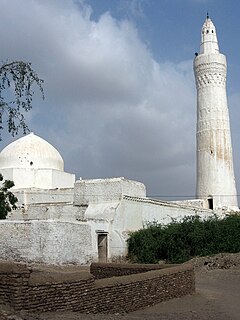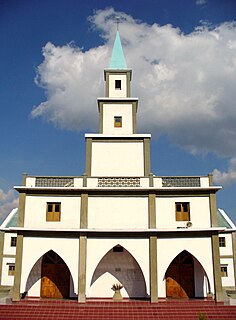The Article 20 of the Japanese Constitution provides for freedom of religion in Japan, and the government generally respects this right in practice.
The Constitution of Andorra provides for freedom of religion, and the Government generally respects this right in practice. There is no state religion; however, the Constitution acknowledges a special relationship with the Roman Catholic Church, which receives some privileges, although no direct subsidies, not available to other religious groups. There are no reports of societal abuses and discrimination based on religious belief or practice.

Yemen is an Islamic society. Nearly all Yemenis are Muslims, with approximately 75% belonging to the Sunni Islam and approximately 25% belonging to the Zaydi Shia school of thought. Amongst the native population, there are approximately 1,000 Christians, and 6 remaining Jews. However, Pew-Templeton estimates the number of Christians to be as high as 40,000, though most do not publicly identify as such, due to fears of religious persecution. According to WIN/Gallup International polls, Yemen has the most religious population among Arab countries and it is one of the most religious population world-wide.

Christianity is the largest religion in Tanzania representing 60% of the total population. There are also substantial Muslim and Animist minorities.

Christianity is the largest religion in Cape Verde, with Roman Catholics having the most adherents. Different sources give varying estimates on the relative sizes of various Christian denominations. More than 93% of the population of Cape Verde is Christian, with almost 80% being Roman Catholic, according to an informal poll taken by local churches. About 5% of the population is Protestant. The largest Protestant denomination is the Church of the Nazarene. Other groups include the Seventh-day Adventist Church, the Church of Jesus Christ of-day Saints, the Assemblies of God, the Universal Church of the Kingdom of God, the New Apostolic Church and various other Pentecostal and evangelical groups.

The majority of the population of East Timor is Christian, and the Catholic Church is the dominant religious institution, although it is not formally the state religion. There are also small Protestant and Sunni Muslim communities.
Christianity is the predominant religion in Solomon Islands. The vast majority of Christians in the country belong to Protestant churches, with Anglicanism being the single largest denomination. The constitution of Solomon Islands establishes the freedom of religion, and this freedom is respected in practice by both the government and general society.
In Nauru, the Nauru Congregational Church is the largest religion, encompassing 35.71% of the population as of the 2011 census. Freedom of religion is a constitutional right, and the country's laws and society uphold this right without any significant breaches.
Christianity is the dominant religioninPalau, although there is no state religion. Freedom of religion is enshrined in Palau's constitution, and both the government and general society respect this right in practice.

Religion in Antigua and Barbuda consists of the religious beliefs practices of people living in Antigua and Barbuda, as well as their history. The majority of the population of Antigua and Barbuda is Christian, and religious freedom is generally respected in the country, although Rastafarians face some obstacles to religious practice.
Religion in the Bahamas is dominated by various Christian denominations and reflects the country's diversity. Since the English colonization, most Bahamians adhere to diverse Protestant denominations with Baptist churches/Evangelicals, Pentecostalism, Adventism and Methodism being at the forefront. There is no state religion in the Bahamas, and there is generally free practice of religious beliefs.

Religion in Barbados is predominantly Christian. Religious freedom is established by law and generally enforced in practice, although some minority religious groups have complaints about government practices that interfere with their beliefs.

Christians in Guinea-Bissau constitute approximately 10 percent (~153,300) of the country's population. Other sources report the population of Christians in Guinea-Bissau may vary from 5 to 13%.
Religion in Guinea is approximately 89 percent Muslim, 7 percent Christian, with 2 percent adhering to indigenous religious beliefs. There are also smaller numbers of Atheists and practitioners of other religions in the country. Much of the population, both Muslim and Christian, also incorporate indigenous African beliefs into their outlook.
The status of religious freedom in Africa varies from country to country. States can differ based on whether or not they guarantee equal treatment under law for followers of different religions, whether they establish a state religion, the extent to which religious organizations operating within the country are policed, and the extent to which religious law is used as a basis for the country's legal code.
The status of religious freedom in Asia varies from country to country. States can differ based on whether or not they guarantee equal treatment under law for followers of different religions, whether they establish a state religion, the extent to which religious organizations operating within the country are policed, and the extent to which religious law is used as a basis for the country's legal code.
The status of religious freedom in Europe varies from country to country. States can differ based on whether or not they guarantee equal treatment under law for followers of different religions, whether they establish a state religion, the extent to which religious organizations operating within the country are policed, and the extent to which religious law is used as a basis for the country's legal code.
The status of religious freedom in North America varies from country to country. States can differ based on whether or not they guarantee equal treatment under law for followers of different religions, whether they establish a state religion, the extent to which religious organizations operating within the country are policed, and the extent to which religious law is used as a basis for the country's legal code.
The status of religious freedom in South America varies from country to country. States can differ based on whether or not they guarantee equal treatment under law for followers of different religions, whether they establish a state religion, the extent to which religious organizations operating within the country are policed, and the extent to which religious law is used as a basis for the country's legal code.
The status of religious freedom in Oceania varies from country to country. States can differ based on whether or not they guarantee equal treatment under law for followers of different religions, whether they establish a state religion, the extent to which religious organizations operating within the country are policed, and the extent to which religious law is used as a basis for the country's legal code.







